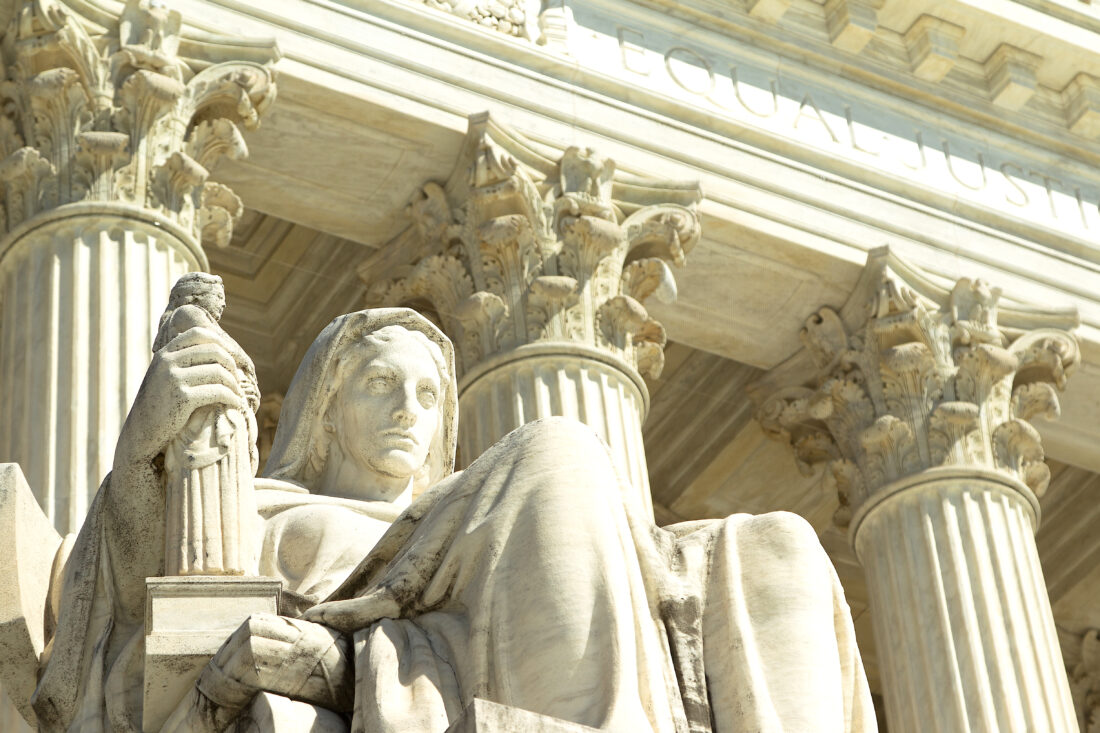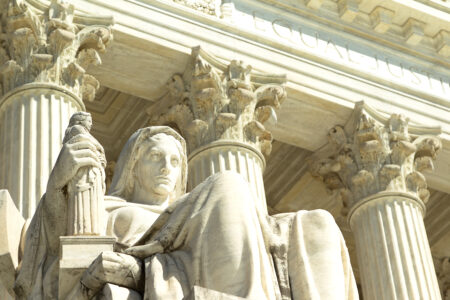SCOTUS hears arguments in voting rights case

Submitted Photo The Voting Rights Act was enacted in 1965 to enforce the 15th Amendment’s ban on racial discrimination in voting. But legal observers say court challenges from conservatives have weakened the law, with a pending case before the Supreme Court they say could dramatically alter its future. Photo from Adobe Stock.
The U-S Supreme Court heard arguments Wednesday, Oct. 15, in a case that legal experts say could undercut the heart of the Voting Rights Act. Tribal advocates are watching closely with a similar legal fight playing out concerning Native American districts in North Dakota.
The case heard this week stems from the drawing of political boundaries in Louisiana. Plaintiffs are challenging the constitutionality of Section 2 of the Act, which prohibits racial discrimination regarding voting practices and procedures.
Jacqueline De Leon, senior staff attorney for The Native American Rights Fund, said there is a presumption from challengers that barriers to civic engagement are a thing of the past for minority populations.
“And unfortunately, what we know through our work across Indian Country is that racial discrimination is alive and well, and that, unfortunately, Native voters are discriminated against often,” she said.
She said drastically changing Section 2 would embolden states to re-draw maps that further weaken the voting power of communities of color. The legal push from conservatives comes as President Donald Trump pressures GOP-led states to update their maps before the 2026 midterms. Plaintiffs contend still factoring in race during redistricting is discriminatory.
In the North Dakota case, tribal advocates last month appealed to the high court, with the focus on whether private citizens can sue to enforce Section 2. De Leon said that while these cases have some differences, they both signal a critical juncture for longstanding legal protections.
“Both cases represent an existential threat to the Voting Rights Act, and it’s incredibly important that voters and that just American citizens are aware that our foundational civil rights statute is under threat,” she said.
De Leon wouldn’t speculate on upcoming decisions, but legal experts say in the Louisiana case, several conservative justices appeared poised to side with the plaintiffs. Those experts say Section 2 is the last remaining pillar of the Voting Rights Act, with other elements recently facing setbacks in the courts. However, the Supreme Court did rule in 2023 that Alabama Republicans likely violated the law when drawing their maps.


